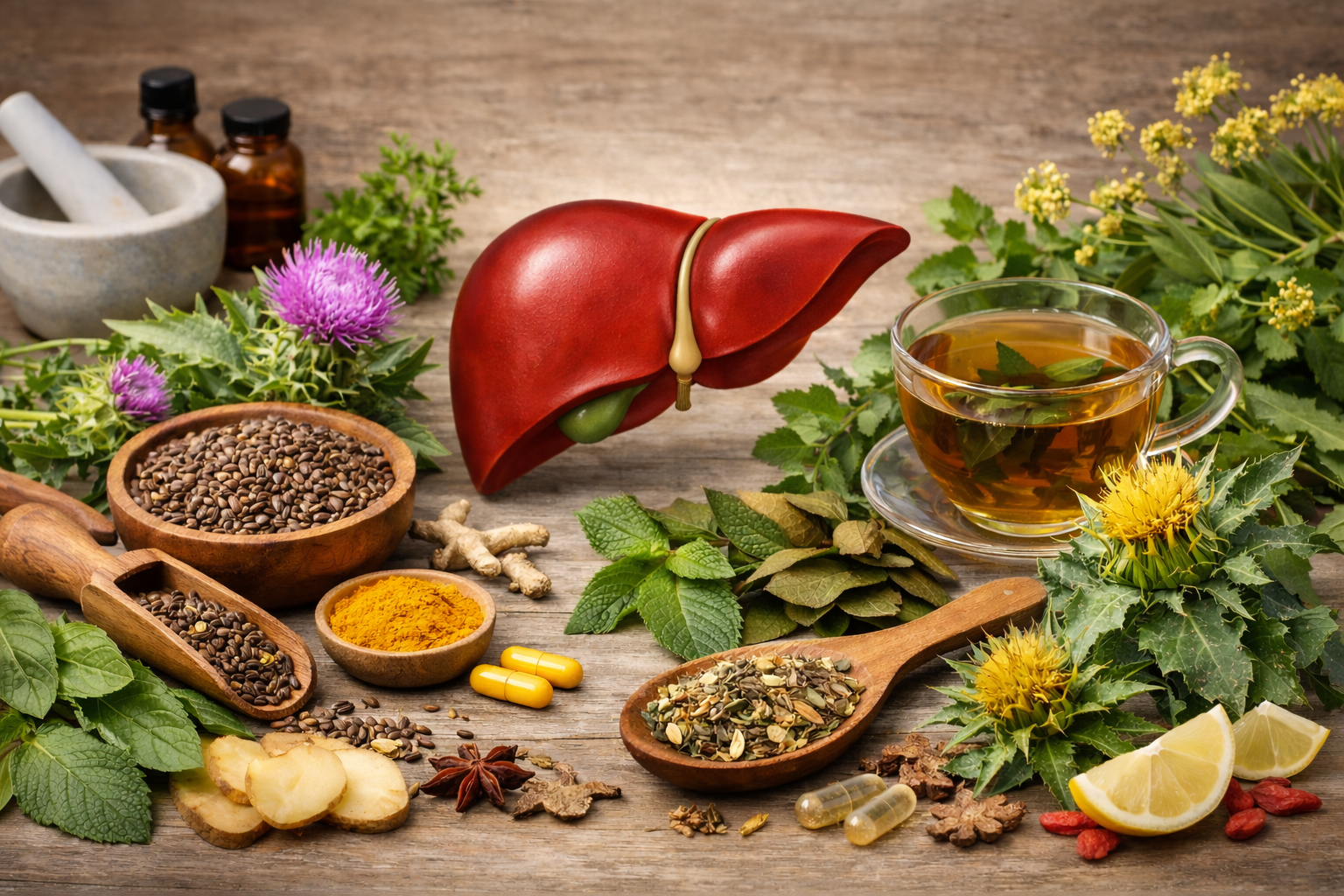Blessed Thistle: Unlock the Secrets to Better Health
Blessed thistle, a Mediterranean herb, has been cherished for centuries due to its medicinal properties.
This ancient plant has been used to address various health concerns, including indigestion and low milk production. Recent studies have begun to uncover the scientific evidence behind its traditional uses, revealing its antiviral, anti-inflammatory, and antioxidant properties.
Dr. Miller's Holy Tea harnesses the power of blessed thistle in a premium herbal formula designed to support optimal wellness and digestive health. You can ORDER NOW and experience the potential benefits of this ancient herb.
Key Takeaways
- Discover the historical significance and therapeutic properties of blessed thistle.
- Learn how blessed thistle can support digestive health and overall wellness.
- Explore the scientific evidence behind blessed thistle's traditional uses.
- Understand the role of blessed thistle in Dr. Miller's Holy Tea.
- Find out how to harness the power of blessed thistle for optimal health.
What is Blessed Thistle?
Blessed thistle, a plant steeped in history and tradition, continues to be a valuable herb in modern times. It is known scientifically as Cnicus benedictus, a name that reflects its revered status in herbal medicine. Over the centuries, this remarkable plant has acquired a host of other names, including Carbenia Benedicta, Cardo Santo, Carduus Benedictus, Holy Thistle, St. Benedict Thistle, and even Chardon Béni in French traditions.
Parts Used and Traditional Applications
The flowering tops, leaves, and upper stems of blessed thistle are prized for their medicinal potential. Traditionally, these parts are harvested and used to create herbal remedies, teas, and tinctures aimed at supporting wellness.
Historical Background and Origin
Blessed thistle originates from the Mediterranean region and has a rich historical legacy dating back to medieval Europe. It was used by monks and traditional healers for its medicinal properties, earning it a reputation as a sacred healing herb. Sometimes known as "cardo santo" in traditional medicine systems, blessed thistle has been cultivated throughout Europe and later brought to North America for its medicinal properties.
Botanical Characteristics
The blessed thistle belongs to the Asteraceae family and features distinctive botanical characteristics, including hairy stems, spiny leaves, and bright yellow flowers surrounded by spiny bracts that give it its thistle-like appearance. These characteristics make it a unique and recognizable plant.
Active Compounds in Blessed Thistle
The primary active compounds in blessed thistle include cnicin, a bitter sesquiterpene lactone, as well as essential oils, tannins, and lignans. Cnicin is thought to stimulate the production of both saliva and gastric acid, aiding digestion.
Blessed thistle is a plant whose flowering tops, leaves, and upper stems are commonly used in herbal preparations. As "the whole plant preparation is particularly valuable in traditional herbal medicine", the synergistic combination of these compounds contributes to its therapeutic effects and bitter taste profile.
In summary, blessed thistle is a versatile herb with a long history of use in traditional medicine. Its unique botanical characteristics and active compounds make it a valuable resource for those seeking natural remedies.
Uses of Blessed Thistle in Manufacturing
Beyond its medicinal applications, blessed thistle also plays a role in the manufacturing sector—particularly in the food and beverage industry. Its naturally bitter flavor makes it a popular ingredient for flavoring certain alcoholic beverages, such as traditional European herbal liqueurs and bitters. Manufacturers often utilize blessed thistle to impart complexity and depth to drinks like vermouth and amaro, giving these beverages their distinctive aromatic profile.
This use highlights the versatility of blessed thistle, demonstrating that its value extends beyond herbal teas and supplements into the world of artisanal drinks and culinary creations.
Blessed Thistle Health Benefits
Blessed thistle is a versatile herb with a multitude of health benefits. It has been used for centuries to support various aspects of health, from digestive issues to inflammation and pain relief. Our herbal tea, Dr. Miller's Holy Tea, incorporates blessed thistle as a key ingredient, leveraging its benefits for digestive health and natural detoxification processes.
Digestive Health Support
Blessed thistle offers significant digestive health support through its ability to stimulate stomach acid production and enhance digestive function. The compound cnicin in blessed thistle acts as a bitter tonic, triggering the digestive system's natural processes and increasing saliva production and gastric acid secretion. This makes it particularly effective for conditions like indigestion, bloating, and poor appetite.
- Stimulates stomach acid production
- Enhances digestive function
- Effective for indigestion and bloating
Anti-inflammatory and Pain Relief Properties
Research has demonstrated blessed thistle's impressive anti-inflammatory and pain relief properties. Studies have shown its effectiveness in reducing inflammation markers and alleviating discomfort in various conditions. The cnicin compound is thought to contribute to these benefits, making blessed thistle a potential natural remedy for pain management.

Potential Antiviral Effects
The potential antiviral effects of blessed thistle have gained attention in recent research. Studies indicate that blessed thistle contains compounds that may help inhibit viral replication, including promising applications against respiratory viruses. This makes it a valuable herb for supporting immune health.
Other Therapeutic Applications
Beyond its primary benefits, blessed thistle shows therapeutic potential for wound healing, particularly for diabetic wounds, thanks to its anti-inflammatory properties and ability to promote tissue regeneration. Emerging research also suggests that blessed thistle may have applications for nerve regeneration, with animal studies showing improved recovery after nerve injury when treated with cnicin from blessed thistle.
In conclusion, blessed thistle is a multifaceted herb with a range of health benefits, from digestive support to anti-inflammatory and potential antiviral effects. Incorporating blessed thistle into your health regimen, such as through Dr. Miller's Holy Tea, can be a valuable step towards enhancing overall well-being.
How to Use Blessed Thistle for Maximum Benefits
To reap the benefits of blessed thistle, it's essential to understand how to incorporate it into your daily routine effectively. Blessed thistle can be consumed in various forms, including teas, tinctures, and capsules, each offering different levels of potency and convenience.
Dr. Miller's Holy Tea: A Premium Blessed Thistle Formula
Dr. Miller's Holy Tea offers a premium blessed thistle formula that combines this powerful herb with other synergistic ingredients to maximize digestive health benefits and overall wellness. This carefully crafted tea is designed to provide a convenient and effective way to incorporate blessed thistle into your daily routine.

Preparation Methods and Dosage Guidelines
For those preparing blessed thistle at home, the traditional method involves steeping 1-3 teaspoons of dried blessed thistle in one cup of boiling water for 5-15 minutes, creating a bitter but therapeutic tea. Blessed thistle is also available as a tincture, where drops can be added to water or other drinks. It's crucial to follow the manufacturer's instructions for the right dosage.
When it comes to dosing, keep in mind that the appropriate amount of blessed thistle can vary based on factors such as age, health status, and individual needs. There isn't enough scientific data to establish a definitive dosage range for everyone, so natural products like blessed thistle should be used with care. Always follow the directions provided on product labels, and consult with a healthcare professional—such as your pharmacist or physician—before starting blessed thistle, especially if you have underlying health conditions or are taking other medications. This ensures you get the benefits of blessed thistle while maintaining safety and peace of mind.
Blessed Thistle vs. Milk Thistle: Understanding the Difference
While blessed thistle and milk thistle are often confused, they are distinct plants with different properties. Blessed thistle (Cnicus benedictus) is primarily used for digestive support, whereas milk thistle (Silybum marianum) is renowned for liver protection and contains silymarin, which may improve breast milk production.
When selecting blessed thistle products, look for high-quality preparations like Dr. Miller's Holy Tea that maintain the integrity of the plant's beneficial compounds and combine it with complementary herbs for enhanced effectiveness.
Precautions and Considerations
While blessed thistle offers numerous health benefits, it's crucial to be aware of the potential risks and take necessary precautions. As with any herbal supplement, consulting with a healthcare provider before adding blessed thistle to your regimen is advisable, especially if you have existing health conditions or are taking medications.
Consuming more than 6 grams of blessed thistle daily can lead to side effects such as nausea, vomiting, diarrhea, and hypertension. Certain individuals should avoid blessed thistle altogether, including pregnant women, people allergic to plants in the Asteraceae family, and those with gastrointestinal conditions like GERD or Crohn's disease.
Interactions with other medications are also a concern. Blessed thistle may interact with blood thinners, diabetes medications, and certain hormonal therapies. Moreover, the lack of regulation by the FDA means that choosing a reputable brand is crucial for ensuring the purity and potency of blessed thistle products.
To use blessed thistle safely, start with a lower dose and monitor for any adverse effects before increasing to the full recommended amount. It's also important to be aware of the potential for drug interactions and to consult with your healthcare provider if you have any concerns.
By being informed and cautious, you can harness the benefits of blessed thistle while minimizing its risks.
Possible Drug Interactions with Blessed Thistle
When considering blessed thistle, it's important to pay close attention to how it may interact with certain medications, especially those affecting stomach acid.
Antacids:
Because blessed thistle can stimulate the production of stomach acid, it may reduce the effectiveness of common antacids such as Tums (calcium carbonate), Rolaids (dihydroxyaluminum sodium carbonate), Riopan (magaldrate), Bilagog (magnesium sulfate), and Amphojel (aluminum hydroxide). If you rely on these products to reduce acidity in your stomach, the effects of blessed thistle could counteract their intended relief.
H2-Blockers:
Medications like Tagamet (cimetidine), Zantac (ranitidine), Axid (nizatidine), and Pepcid (famotidine) are commonly used to lower stomach acid levels. Since blessed thistle may stimulate more acid production, taking it alongside H2-blockers could lessen the benefits of your medication.
Proton Pump Inhibitors (PPIs):
Proton pump inhibitors—including Prilosec (omeprazole), Prevacid (lansoprazole), Aciphex (rabeprazole), Protonix (pantoprazole), and Nexium (esomeprazole)—are also used to suppress stomach acid. As with antacids and H2-blockers, blessed thistle's potential to increase stomach acid may make these medications less effective.
If you are using any of these medications, it’s best to consult your healthcare provider before introducing blessed thistle. This helps ensure you avoid any unwanted interactions and continue managing your health effectively.
FAQ
What are the potential side effects of consuming Cnicus benedictus?
The plant may cause stomach upset, diarrhea, or vomiting in some individuals. It is essential to consult a healthcare provider before using it, especially if you have pre-existing medical conditions or are taking medications.
Can I take blessed thistle during pregnancy or breastfeeding?
There is limited scientific evidence on the safety of using this herb during pregnancy or breastfeeding. As a precaution, it is recommended to consult a healthcare provider before consuming it to avoid any potential risks. In fact, some evidence suggests that blessed thistle might not be safe to take during pregnancy, so it’s best to avoid its use entirely if you are expecting. Similarly, because there isn’t enough reliable information on its safety while breastfeeding, it’s wise to err on the side of caution and avoid blessed thistle during this time as well.
How does Cnicus benedictus interact with other medications or substances?
The plant contains tannins and other compounds that may interact with certain medications, such as blood thinners or diabetes medications. It is crucial to consult a healthcare provider before using it, especially if you are taking prescription medications or have underlying medical conditions.
What is the recommended dosage for consuming Cnicus benedictus tea or products?
The ideal dosage may vary depending on the individual, product, and preparation method. It is recommended to follow the guidelines provided by the manufacturer or consult a healthcare provider for personalized advice.
How does blessed thistle compare to milk thistle in terms of its therapeutic properties?
While both plants are used to support digestive health, they have distinct differences in their active compounds and therapeutic applications. Cnicus benedictus is often used to stimulate digestion and relieve indigestion, whereas milk thistle is commonly used to support liver function.
Can I use Cnicus benedictus to treat wounds or skin conditions?
The plant has been traditionally used to treat wounds and skin conditions due to its anti-inflammatory and antimicrobial properties. However, it is essential to consult a healthcare provider before using it for topical applications to ensure proper usage and avoid any potential risks.

Act now to purchase or subscribe by clicking the button to obtain Your Holy Tea today!
Dr. Miller's Holy Tea provides a remarkable array of advantages that extend far beyond just a soothing beverage. It can elevate your metabolism, increase your energy, enhance your skin's radiance, and support digestion. The components of this tea contribute positively to your overall well-being. Its benefits include detoxification support, immune system enhancement, and promoting relaxation, making it an ideal complement to your wellness regimen for comprehensive health enhancement.











